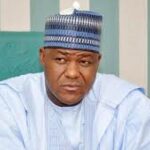The ActionAid Nigeria has commended the Federal Government’s reluctance to sign onto the Organisation for Economic Co-operation and Development, (OEDC) tax deal.
The country director of AAN, Ene Obi, said on Saturday in Abuja in a statement that the organization noted that the OECD recognises the need to better tax the digital economy and the fact that big tech companies need to be making bigger tax contributions.
- APPLY: Federal Roads Safety Corps recruitment 2021
- Abba Kyari: Why I attended Obi Cubana’s mum burial
“However, ActionAid Nigeria supports the reluctance of the Federal Republic of Nigeria to sign onto the OECD global tax reform deal,” Obi said.
According to her, the deal consists of two parts, with pillar one stating that if a company has a global turnover of more than 20bn euros and a profit margin of more than 10 percent, then 20-30 percent of the profit in excess of 10 percent of revenue will be allocated to market jurisdictions using a revenue-based allocation key.
“A multilateral agreement will be developed and opened for signature in 2022 to implement pillar one, with a view of the multilateral agreement being in force from 2023 onwards. The agreement can then be reviewed earliest seven years after its implementation (i.e., earliest in 2030),” she said.
She also listed pillar two as setting a global minimum tax rate of (at least) 15 percent, which will only apply to companies with a global turnover of more than 750m euros.
She said, “In Nigeria, tax regimes are dependent on the benefits the countries are bound to gain. The gains may be to maximize tax collection or maximize FDI inflow. However, the current global minimum tax of 15 percent is a threat to both gains.
“Nigeria set up rules and regulations with the corporate tax at 30 percent for big and multinational companies. The average Corporate Tax Rate for African countries is 28 percent. However, the 15 percent minimum corporate rate is too low and therefore inadequate to stop the ‘race to the bottom.
“The benefits of a proposed minimum tax will be far below what is expected to fund the budget deficit in Nigeria, which will translate to the country’s inability to meet up with the fight against poverty and unemployment.
“For a moderate stand, Nigeria, like most other African countries will need the global minimum tax rate to stand between 25 percent to 30 percent above the 21 percent as initially proposed by the United States.”
She also said that ActionAid Nigeria is displeased with the negotiation carried out by rich countries for their benefit.
She said that the deal calls for all countries to remove their unilateral measures to tax the digital economy, such as digital services taxes, and replace them with the new rules laid out in pillars one and two.
“It is fundamentally unfair to ask countries in the global south to trade-off their unilateral taxation of the digital economy, in lieu of implementing a deal they were not part of negotiating, coupled with the fact that they will only marginally benefit from it.
“The fact that this new deal will take effect earliest in 2023 and cannot be reviewed until earliest 2030 is not good enough. Revenues are desperately needed in the global south to tackle the challenges posed by the COVID-19 pandemic and to fight poverty and inequality. Companies operating within the digital economy need to be compelled to pay their fair share of taxes,” she said.
She therefore recommend while the new deal is disappointing, it underlines the need for more comprehensive reforms of the international tax practices and treaties.
She said that such reforms are expected to give countries in the global south equal voices in the process of negotiating international tax rules through a possible United Nations Tax Body to give increased rights to countries in the global south to effectively tax digital companies operating within their jurisdictions.

 Join Daily Trust WhatsApp Community For Quick Access To News and Happenings Around You.
Join Daily Trust WhatsApp Community For Quick Access To News and Happenings Around You.


